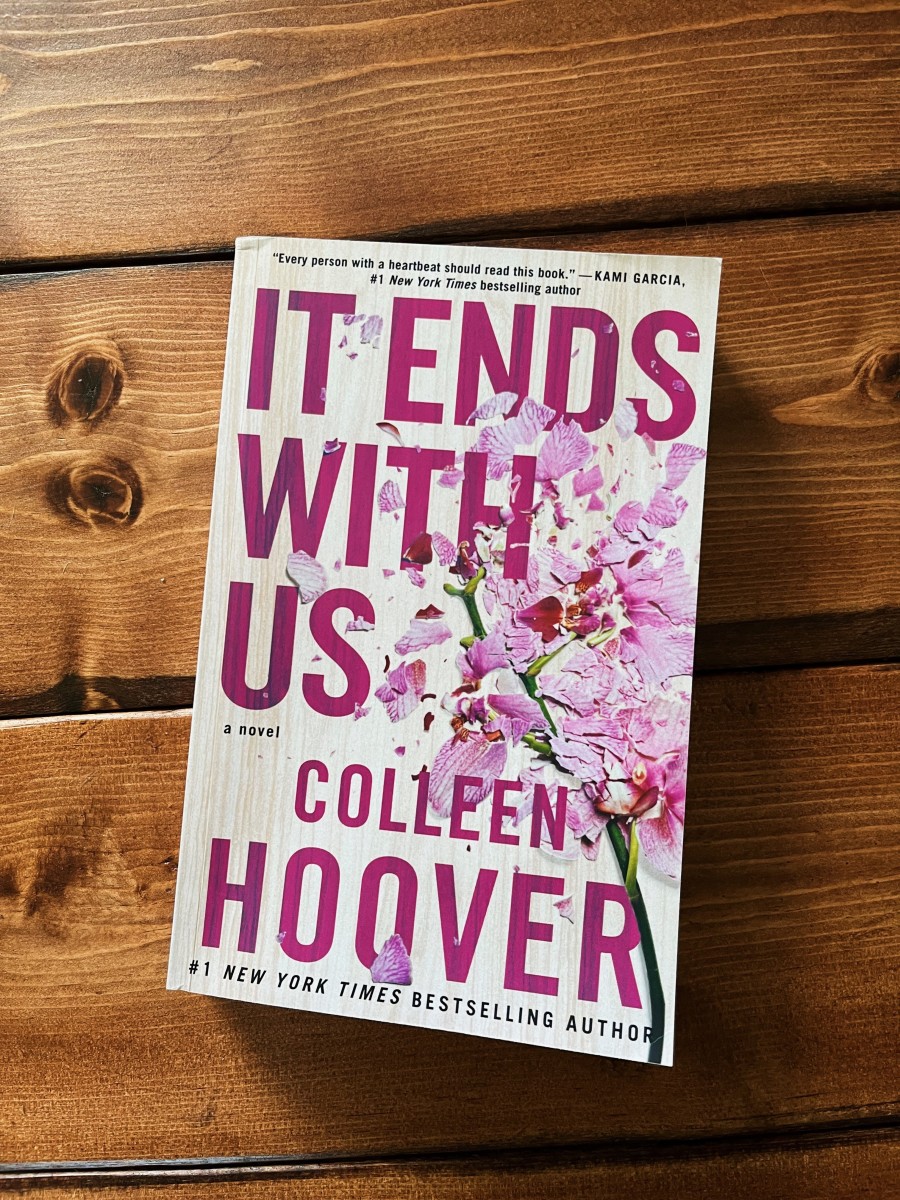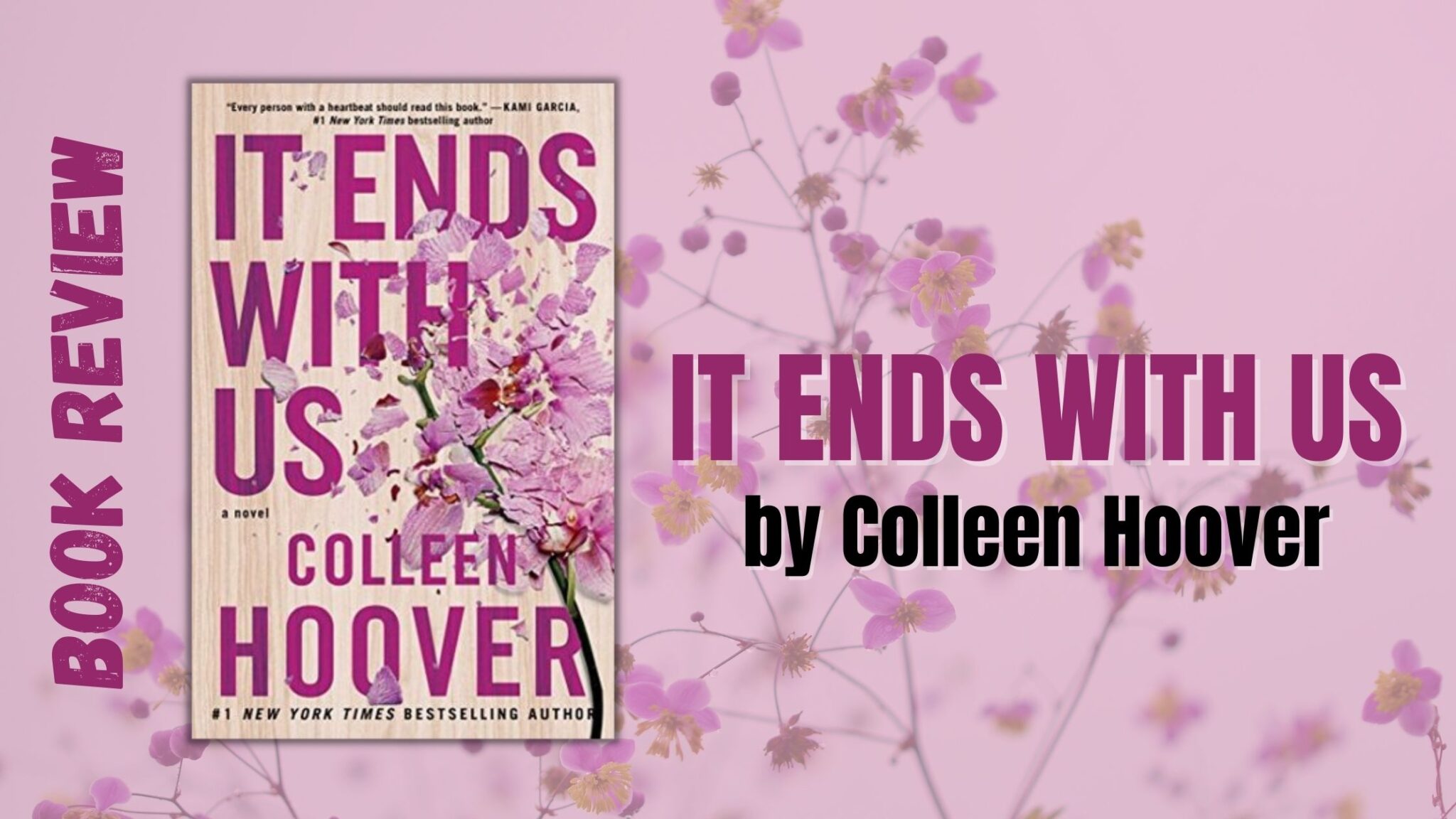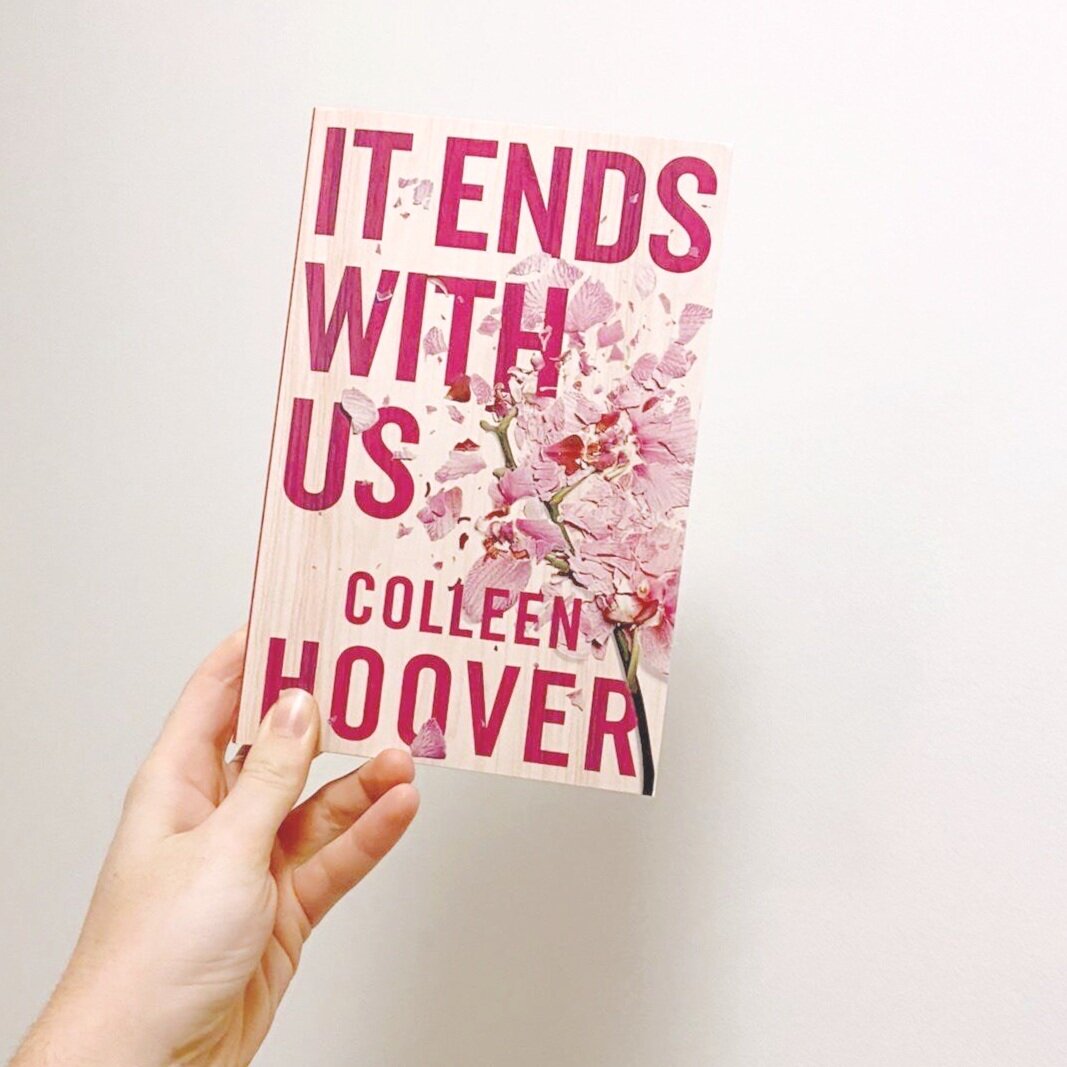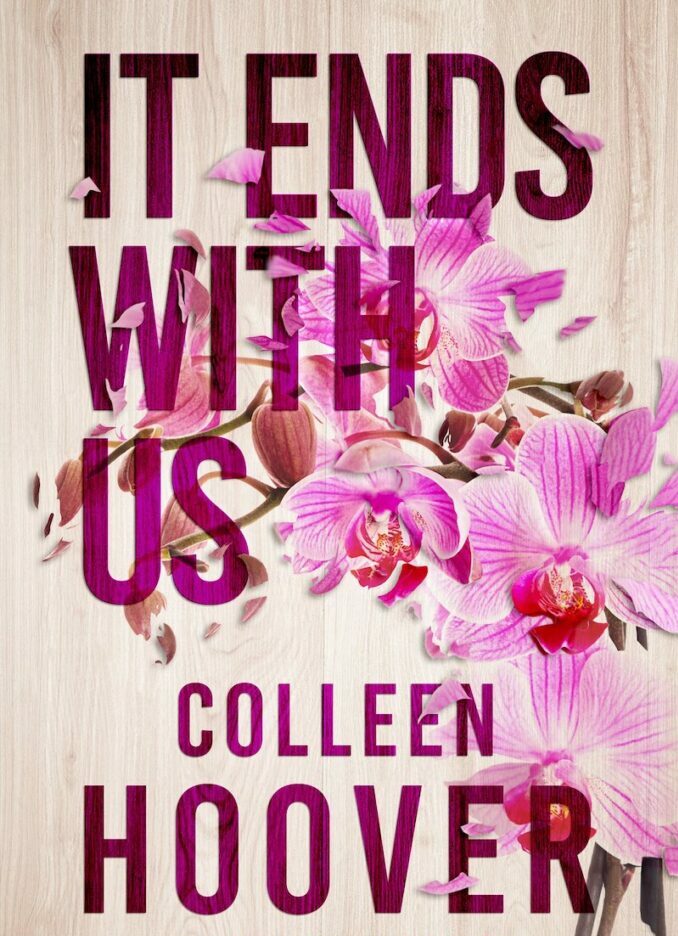It Ends With Us: A Book Review Through the Lens of Willy Wonka
Related Articles: It Ends With Us: A Book Review Through the Lens of Willy Wonka
Introduction
With enthusiasm, let’s navigate through the intriguing topic related to It Ends With Us: A Book Review Through the Lens of Willy Wonka. Let’s weave interesting information and offer fresh perspectives to the readers.
Table of Content
It Ends With Us: A Book Review Through the Lens of Willy Wonka

Colleen Hoover’s It Ends With Us is a captivating love story that explores themes of abuse, resilience, and second chances. While the novel’s central plot revolves around Lily, a young woman navigating a tumultuous relationship with a charming but controlling man, the story’s essence resonates with the enigmatic and complex character of Willy Wonka from Roald Dahl’s Charlie and the Chocolate Factory.
This review seeks to analyze It Ends With Us through the prism of Willy Wonka, exploring the parallels between the two narratives and highlighting the novel’s enduring impact on readers.
The Allure of the Unconventional:
Both Willy Wonka and Ryle Kincaid, Lily’s love interest, are undeniably charismatic figures. Their charm lies in their unconventional nature. Willy Wonka is a whimsical, eccentric chocolate maker who lives in a world of his own making. Ryle, a neurosurgeon, exudes confidence and intelligence, captivating Lily with his intellect and charm. Both characters possess an air of mystery, drawing people into their orbit with their unique allure.
However, both characters also harbor hidden complexities that ultimately unravel their facades. Willy Wonka’s obsession with control and his manipulative nature become evident as the story unfolds, leading to disastrous consequences for the children who enter his factory. Similarly, Ryle’s seemingly perfect exterior masks a volatile temper and a propensity for abusive behavior, ultimately jeopardizing his relationship with Lily.
The Shadow of Control:
Willy Wonka’s factory is a testament to his desire for control. He meticulously designs every aspect of the factory, from the fantastical machinery to the intricate chocolate creations. This need for control extends to his relationship with the children who enter his factory, dictating their every move and manipulating them to suit his own agenda.
Ryle, too, exhibits a similar controlling nature. He dictates Lily’s life, from her career choices to her social interactions. His possessiveness and jealousy manifest in controlling behaviors that isolate Lily from her support network and erode her sense of self-worth.
The Price of Obsession:
Willy Wonka’s obsession with chocolate and his desire to create the perfect candy are ultimately his downfall. His single-minded focus leads him to neglect his human connections and prioritize his own ambitions over the well-being of others.
Similarly, Ryle’s obsession with Lily and his fear of losing her drive him to irrational and destructive actions. His love for her is tainted by his own insecurities and need for control, leading him to prioritize his own needs over hers.
The Journey to Self-Discovery:
Both It Ends With Us and Charlie and the Chocolate Factory are stories about self-discovery. Charlie, a young boy with a pure heart, navigates the whimsical yet perilous world of Willy Wonka’s factory, ultimately learning valuable lessons about himself and the world around him.
Lily, too, embarks on a journey of self-discovery as she confronts the complexities of her relationship with Ryle and learns to prioritize her own needs and well-being. She grapples with the trauma of her past and finds the strength to break free from an abusive relationship, ultimately rediscovering her own voice and agency.
The Importance of Choosing Yourself:
Both stories emphasize the importance of choosing oneself. Charlie, despite the allure of Willy Wonka’s chocolate, remains true to his values and ultimately chooses to walk away from the factory, rejecting the temptation of instant gratification and prioritizing his own well-being.
Lily, after enduring years of abuse, makes the difficult but empowering decision to leave Ryle, prioritizing her own safety and happiness over the comfort of a familiar, yet destructive, relationship. She chooses to break free from the cycle of abuse and build a life for herself, prioritizing her own needs and aspirations.
The Enduring Power of Hope:
While both stories depict the darker aspects of human nature, they also offer a glimmer of hope. Charlie, despite the challenges he faces, emerges from his journey with a renewed sense of purpose and a strengthened sense of self.
Lily, too, finds solace and healing in the support of her loved ones and the strength she discovers within herself. She learns to embrace her resilience and rebuild her life, finding love and happiness on her own terms.
Related Searches:
- It Ends With Us Book Review: This search explores various reviews of the book, offering insights into its plot, themes, and characters.
- Colleen Hoover Books: This search leads to information about Colleen Hoover’s other books, including similar themes of love, loss, and redemption.
- Domestic Abuse in Literature: This search delves into the portrayal of domestic abuse in literature, exploring its impact on characters and readers.
- Toxic Relationships in Fiction: This search focuses on fictional narratives that explore the complexities of toxic relationships and their consequences.
- Second Chances in Literature: This search examines how second chances are portrayed in literature, exploring themes of redemption and personal growth.
- Charlie and the Chocolate Factory Themes: This search explores the various themes present in Roald Dahl’s classic story, including the dangers of greed, the importance of family, and the power of imagination.
- Willy Wonka Character Analysis: This search delves into the character of Willy Wonka, analyzing his motivations, complexities, and impact on the story.
- It Ends With Us Movie Adaptation: This search explores the potential for a movie adaptation of the novel, discussing casting choices and potential changes to the story.
FAQs:
- What is the main theme of It Ends With Us? The main theme of It Ends With Us is the cycle of abuse and the journey to self-discovery and healing. It explores the complexities of toxic relationships and the importance of choosing oneself.
- How does It Ends With Us relate to Charlie and the Chocolate Factory? Both stories explore the allure of unconventional characters who possess a hidden darkness. They also highlight the dangers of obsession and the importance of choosing oneself.
- What are the key takeaways from It Ends With Us? Key takeaways include the importance of recognizing and addressing abusive behavior, the power of resilience, the value of seeking support, and the possibility of finding happiness and love after trauma.
- Is It Ends With Us a good book for everyone? While It Ends With Us is a captivating read, it is important to note that it deals with sensitive topics like domestic abuse and trauma. Readers should be aware of these themes before engaging with the story.
Tips for Reading It Ends With Us:
- Be prepared for emotionally challenging content: The novel explores themes of domestic abuse and trauma, which can be emotionally challenging for readers.
- Seek support if needed: If you or someone you know is experiencing domestic abuse, please seek support from a trusted friend, family member, or professional organization.
- Remember that you are not alone: There are resources available to help those who are experiencing or have experienced abuse.
- Focus on the message of hope and resilience: Despite the darkness, It Ends With Us ultimately offers a message of hope and resilience, highlighting the power of self-love and the possibility of healing.
Conclusion:
It Ends With Us is a compelling and thought-provoking novel that transcends the boundaries of a traditional love story. By drawing parallels between Lily’s journey and Willy Wonka’s enigmatic character, the review highlights the novel’s exploration of control, obsession, and the importance of choosing oneself. Ultimately, It Ends With Us serves as a powerful reminder of the enduring human capacity for resilience and the transformative power of self-discovery.








Closure
Thus, we hope this article has provided valuable insights into It Ends With Us: A Book Review Through the Lens of Willy Wonka. We hope you find this article informative and beneficial. See you in our next article!